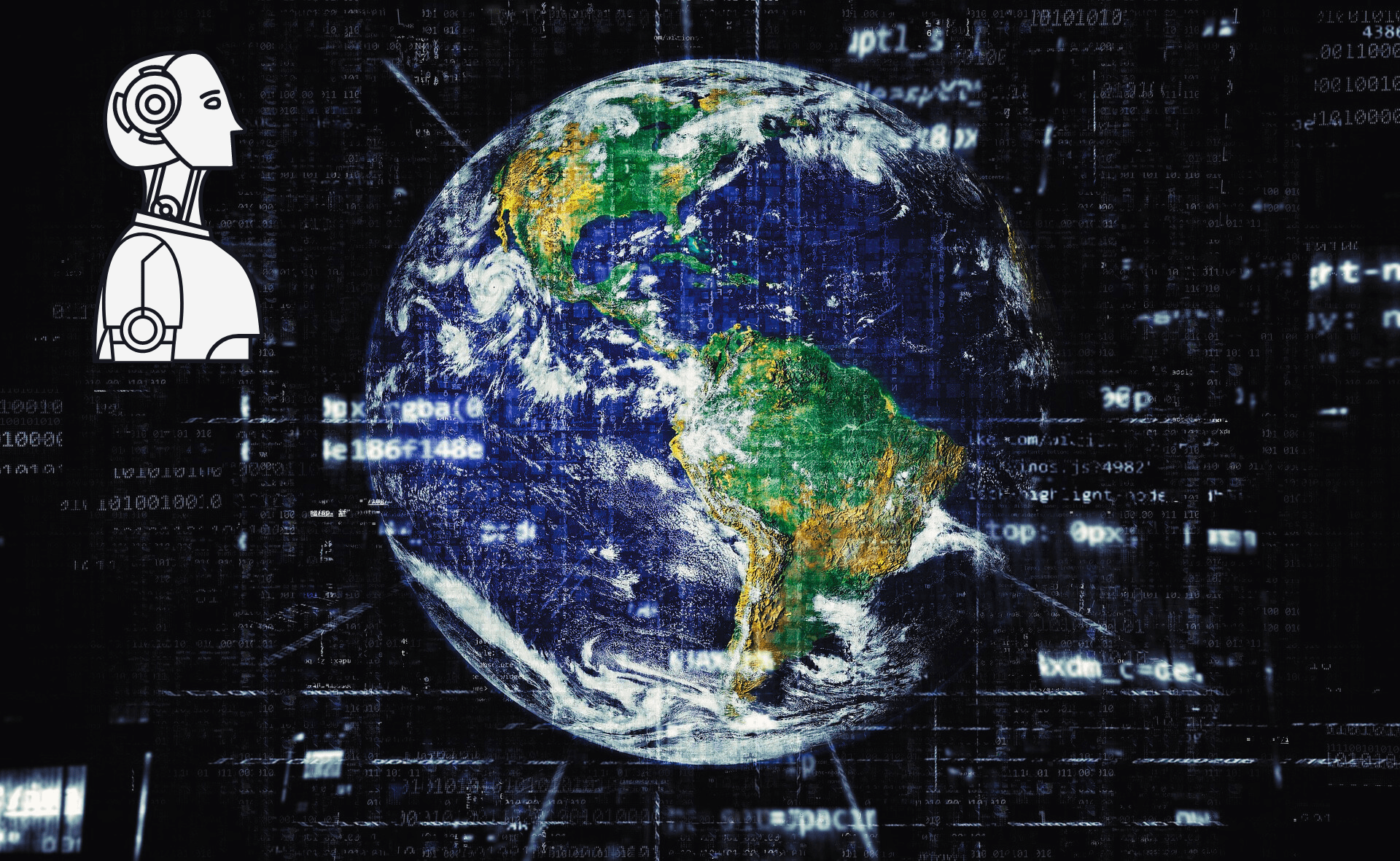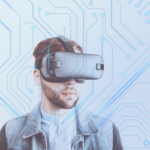Introduction
In the vast landscape of technological innovation, there’s a constant pursuit of the next big thing, the revolutionary breakthrough that will reshape industries and societies.
With each passing year, advancements in science and engineering propel us closer to this future. In this article, we delve into the realm of technological evolution, exploring the potential avenues for the next major revolution and its impact on our world.
Defining the Technological Landscape
Before we veture into the future, let’s establish the current technological landscape. We’re amidst the digital age, where interconnected systems, artificial intelligence, and automation are prevalent. Technologies like blockchain, augmented reality (AR), and the Internet of Things (IoT) have already begun reshaping various sectors, from finance to healthcare to entertainment.
Relevance and Importance
Understanding the trajectory of technological development is crucial for businesses, policymakers, and individuals alike. Anticipating the next big innovation enables proactive adaptation, fostering competitiveness and efficiency. Moreover, technological revolutions often bring about societal transformations, influencing how we live, work, and interact.
Technical Specifications
To envision the next technological revolution, we must first grasp the technical aspects that could drive it forward. Here, we explore various specifications and components that might play a role:
Quantum Computing
Quantum computing holds immense promise due to its unparalleled processing power. Unlike classical computers that rely on bits, which represent either 0 or 1, quantum computers use qubits, which can exist in multiple states simultaneously. This enables them to perform complex calculations exponentially faster than traditional computers.
Nanotechnology
Nanotechnology involves manipulating matter at this level to create innovative products and solutions. From advanced materials with unprecedented strength to targeted drug delivery systems, nanotechnology has far-reaching implications across industries.
Biotechnology
Advancements in biotechnology continue to revolutionize healthcare, agriculture, and environmental sustainability. Gene editing technologies like CRISPR-Cas9 offer the potential to cure genetic diseases and enhance crop yields. Synthetic biology enables the design of novel organisms for various purposes, from bioremediation to biofuel production.
Artificial Intelligence (AI)
AI, particularly machine learning, has already permeated various aspects of our lives, from personalized recommendations to autonomous vehicles. The next phase of AI evolution may involve the development of artificial general intelligence (AGI), capable of performing any intellectual task that a human can. This could usher in a new era of automation and problem-solving.
Applications
The impact of the next technological revolution will be felt across numerous sectors. Here, we explore some potential applications:
Healthcare
Innovations in technology could revolutionize healthcare delivery, making diagnostics more accurate, treatments more personalized, and preventive care more proactive. From wearable devices that monitor vital signs in real-time to telemedicine platforms that enable remote consultations, technology has the potential to democratize access to healthcare.
Manufacturing
The integration of automation, robotics, and AI could lead to the rise of smart factories capable of autonomous production and optimization. Additive manufacturing, commonly known as 3D printing, could enable on-demand manufacturing of complex parts with minimal waste. Supply chains may become more resilient and efficient through blockchain-powered traceability.
Energy
The transition to renewable energy sources, coupled with advancements in energy storage and distribution, could reshape the global energy landscape. Smart grids, enabled by IoT devices and AI algorithms, could optimize energy usage and reduce waste. Breakthroughs in battery technology could make electric vehicles more affordable and accessible.
Education
Technology has the potential to democratize education, making learning more accessible and personalized. Virtual reality (VR) and augmented reality (AR) could create immersive educational experiences, enabling students to explore historical events or conduct scientific experiments in virtual environments. AI-powered tutors could provide personalized learning paths tailored to individual students’ needs.
Benefits
The next technological revolution promises a myriad of benefits for individuals, businesses, and society as a whole. Here are some potential advantages:
Increased Efficiency
Automation and optimization enabled by technology could streamline processes across various industries, reducing costs and improving productivity. From predictive maintenance in manufacturing to algorithmic trading in finance, efficiency gains could be substantial.
Enhanced Quality of Life
Technological advancements in healthcare, transportation, and communication have the potential to enhance quality of life for people around the world. Access to life-saving treatments, efficient public transportation systems, and instant global communication could improve well-being and foster interconnectedness.
Economic Growth
Technological innovation has historically been a driving force behind economic growth and prosperity. The next technological revolution could create new industries, job opportunities, and sources of wealth, fueling economic development and prosperity.
Sustainable Development
Addressing global challenges such as climate change and resource scarcity requires innovative solutions. Technology can play a crucial role in promoting sustainable development by enabling renewable energy sources, efficient resource utilization, and environmental monitoring.
Challenges and Limitations
Despite its promise, the next technological revolution also poses significant challenges and limitations. Here are some considerations:
Ethical Concerns
As technology becomes more pervasive and powerful, ethical considerations become increasingly important. Issues such as data privacy, algorithmic bias, and autonomous weaponry require careful regulation and ethical oversight to mitigate potential harms.
Socioeconomic Disparities
Technological advancements have the potential to exacerbate existing socioeconomic disparities. Access to cutting-edge technologies and digital literacy may not be evenly distributed, widening the gap between the haves and have-nots.
Job Displacement
Automation and AI have the potential to disrupt traditional industries and occupations, leading to job displacement and economic upheaval. Retraining and reskilling initiatives will be essential to mitigate the impact of automation on the workforce.
Security Risks
With increased connectivity comes increased vulnerability to cyber threats and attacks. Protecting critical infrastructure, sensitive data, and personal privacy will be paramount in the face of evolving cyber threats.
Latest Innovations
Here are some recent advancements that could pave the way for the next technological revolution:
Neuromorphic Computing
Inspired by the human brain, neuromorphic computing architectures aim to emulate the brain’s neural networks. These systems have the potential to perform complex cognitive tasks with unparalleled efficiency, opening new frontiers in AI and robotics.
Space Exploration Technologies
Advancements in space exploration technologies, such as reusable rockets and lunar habitats, could enable sustainable human settlement beyond Earth. Private companies like SpaceX and Blue Origin are driving innovation in this space, pushing the boundaries of what’s possible in space exploration.
Quantum Internet
Building on the principles of quantum mechanics, researchers are developing quantum internet prototypes capable of ultra-secure communication and distributed quantum computing. Quantum encryption could revolutionize cybersecurity, protecting sensitive data from quantum-enabled attacks.
Future Prospects
Looking ahead, the future of technology holds boundless possibilities. Here are some predictions and speculations about what the next technological revolution might entail:
Convergence of Technologies
The next technological revolution may involve the convergence of multiple disciplines, blurring the lines between biology, nanotechnology, AI, and beyond. This interdisciplinary approach could lead to groundbreaking innovations with far-reaching implications.
Human Augmentation
Advancements in biotechnology and neuroscience could enable human augmentation technologies that enhance our physical and cognitive abilities. From neural implants that enhance memory to exoskeletons that augment strength, these technologies could redefine what it means to be human
Sustainable Solutions
Addressing global challenges such as climate change and resource depletion will be paramount in the next technological revolution. Innovations focused on sustainability could include:
Carbon Capture and Utilization
Developing scalable and cost-effective carbon capture technologies could help mitigate greenhouse gas emissions. Captured carbon dioxide could be utilized in various applications, such as manufacturing carbon-neutral fuels or enhancing agricultural productivity.
Circular Economy
Transitioning towards a circular economy model involves designing products for longevity, reuse, and recyclability. Technologies that enable efficient recycling and repurposing of materials could reduce waste and minimize resource extraction.
Clean Energy Innovations
Continued advancements in renewable energy technologies, such as solar, wind, and hydroelectric power, could accelerate the transition away from fossil fuels. Energy storage solutions, such as advanced batteries and hydrogen fuel cells, are critical for enabling the widespread adoption of renewable energy sources.
Ethical AI
As AI becomes increasingly integrated into our daily lives, ensuring ethical and responsible AI development and deployment is essential. Transparency, accountability, and fairness must be prioritized to prevent algorithmic biases and discriminatory outcomes.
Decentralized Technologies
Decentralized technologies, such as blockchain, offer the potential to democratize access to resources and empower individuals. Applications range from decentralized finance (DeFi) and governance to supply chain transparency and digital identity management.
Comparative Analysis
To gain a deeper understanding of the next technological revolution, let’s compare it with previous technological shifts and similar emerging trends:
Industrial Revolution
The next technological revolution shares similarities with the Industrial Revolution in terms of its transformative impact on society and the economy. However, whereas the Industrial Revolution was characterized by mechanization and mass production, the next revolution is driven by digitalization, automation, and connectivity.
Information Age
The Information Age, marked by the proliferation of computers and the internet, laid the groundwork for the next technological revolution. The integration of digital technologies into every aspect of our lives has set the stage for further innovation and disruption.
Fourth Industrial Revolution
The Fourth Industrial Revolution, coined by Klaus Schwab, refers to the convergence of digital, physical, and biological technologies. While the next technological revolution builds upon the foundations of the Fourth Industrial Revolution, it represents a distinct paradigm shift driven by exponential advancements in key areas such as AI, biotechnology, and quantum computing.
User Guides or Tutorials
To navigate the complexities of the next technological revolution, users may benefit from practical guides and tutorials. Here are some resources to consider:
Quantum Computing 101
An introductory guide to quantum computing, covering basic principles, key applications, and implications for various industries.
AI Ethics Handbook
A comprehensive handbook on ethical considerations in AI development and deployment, with practical guidelines for ensuring responsible AI.
Sustainable Technology Toolkit
A toolkit for businesses and individuals looking to adopt sustainable technologies and practices, including case studies and implementation guides.
Conclusion
In conclusion, the next technological revolution holds the promise of transformative change on a global scale. From quantum computing to sustainable solutions, the convergence of various technologies is poised to revolutionize industries, reshape economies, and redefine what’s possible for humanity.
By embracing innovation responsibly and ethically, we can harness the power of technology to address pressing challenges and create a more sustainable and equitable future.
Frequently Asked Questions (FAQs)
Q: What is the next technological revolution?
A: The next technological revolution refers to the anticipated wave of transformative innovations that will reshape industries and societies, driven by advancements in areas such as artificial intelligence, biotechnology, quantum computing, and sustainable technologies.
Q: How will the next technological revolution impact society?
A: The next technological revolution is expected to have far-reaching implications for society, including changes in how we work, communicate, and interact with technology.
It has the potential to improve efficiency, enhance quality of life, and address pressing global challenges such as climate change and healthcare access.
Q: What are some examples of technologies driving the next revolution?
A: Key technologies driving the next revolution include quantum computing, nanotechnology, biotechnology, artificial intelligence, renewable energy, and decentralized technologies like blockchain.
Q: What are the potential benefits of the next technological revolution?
A: The next technological revolution promises numerous benefits, including increased efficiency, enhanced quality of life, economic growth, and sustainable development. It could lead to breakthroughs in healthcare, energy, transportation, education, and beyond.
Q: What are some challenges associated with the next technological revolution?
A: Despite its promise, the next technological revolution also poses challenges such as ethical considerations surrounding AI development, socioeconomic disparities in technology access, job displacement due to automation, and cybersecurity risks.
Q: How can individuals prepare for the next technological revolution?
A: Individuals can prepare for the next technological revolution by staying informed about emerging technologies, acquiring digital skills relevant to their field, embracing lifelong learning, and advocating for responsible and ethical technological development.
Q: What role does sustainability play in the next technological revolution?
A: Sustainability is a central theme in the next technological revolution, with a focus on developing solutions that address global challenges such as climate change, resource depletion, and environmental degradation.
Technologies aimed at promoting sustainability include renewable energy, circular economy practices, and eco-friendly innovations.
Q: How can businesses leverage the next technological revolution?
A: Businesses can leverage the next technological revolution by adopting innovative technologies to improve efficiency, reduce costs, enhance customer experiences, and drive growth.
Embracing sustainable practices and ethical considerations can also help businesses stay competitive and future-proof their operations.









